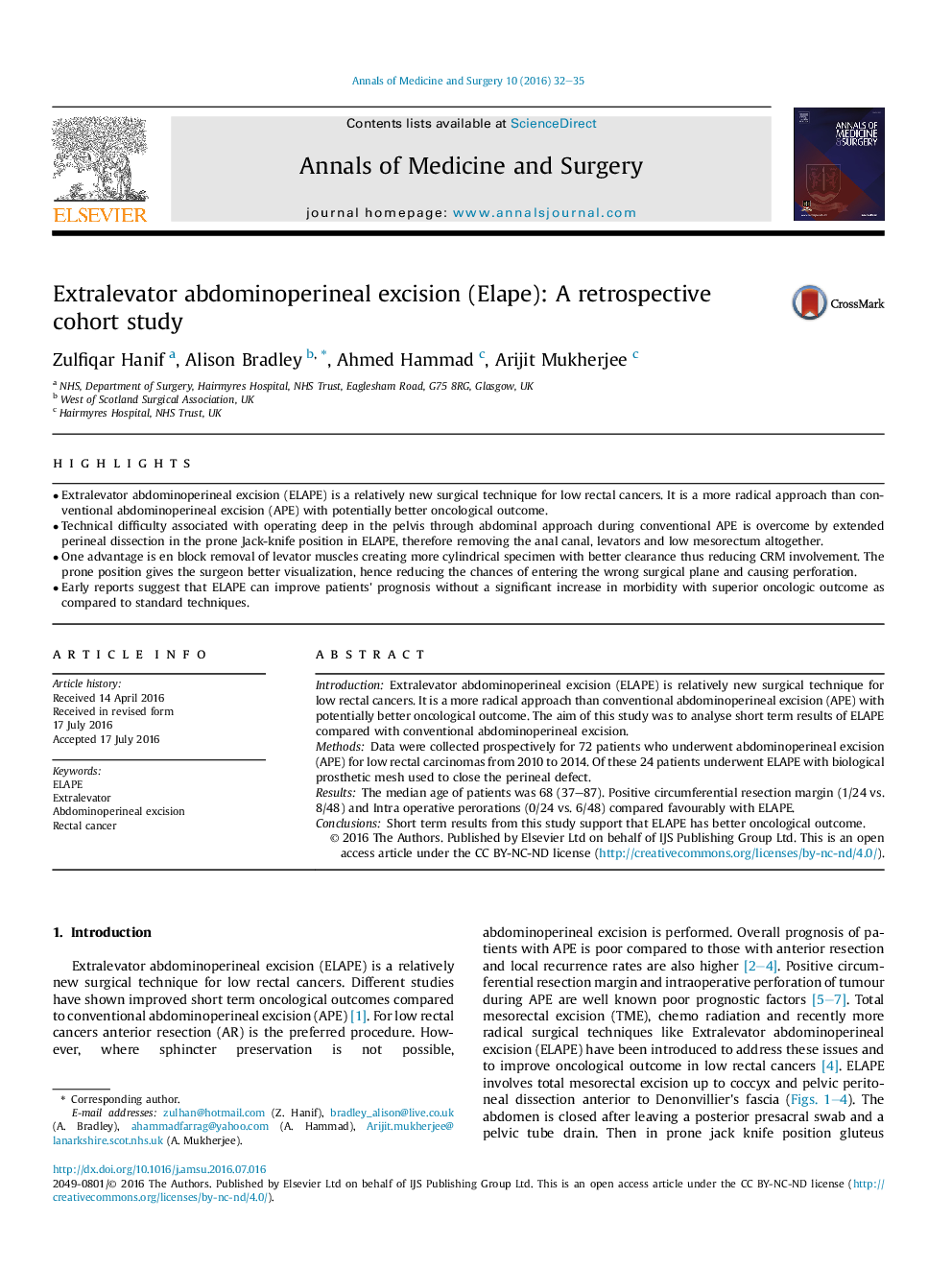| Article ID | Journal | Published Year | Pages | File Type |
|---|---|---|---|---|
| 4195120 | Annals of Medicine and Surgery | 2016 | 4 Pages |
•Extralevator abdominoperineal excision (ELAPE) is a relatively new surgical technique for low rectal cancers. It is a more radical approach than conventional abdominoperineal excision (APE) with potentially better oncological outcome.•Technical difficulty associated with operating deep in the pelvis through abdominal approach during conventional APE is overcome by extended perineal dissection in the prone Jack-knife position in ELAPE, therefore removing the anal canal, levators and low mesorectum altogether.•One advantage is en block removal of levator muscles creating more cylindrical specimen with better clearance thus reducing CRM involvement. The prone position gives the surgeon better visualization, hence reducing the chances of entering the wrong surgical plane and causing perforation.•Early reports suggest that ELAPE can improve patients' prognosis without a significant increase in morbidity with superior oncologic outcome as compared to standard techniques.
IntroductionExtralevator abdominoperineal excision (ELAPE) is relatively new surgical technique for low rectal cancers. It is a more radical approach than conventional abdominoperineal excision (APE) with potentially better oncological outcome. The aim of this study was to analyse short term results of ELAPE compared with conventional abdominoperineal excision.MethodsData were collected prospectively for 72 patients who underwent abdominoperineal excision (APE) for low rectal carcinomas from 2010 to 2014. Of these 24 patients underwent ELAPE with biological prosthetic mesh used to close the perineal defect.ResultsThe median age of patients was 68 (37–87). Positive circumferential resection margin (1/24 vs. 8/48) and Intra operative perorations (0/24 vs. 6/48) compared favourably with ELAPE.ConclusionsShort term results from this study support that ELAPE has better oncological outcome.
